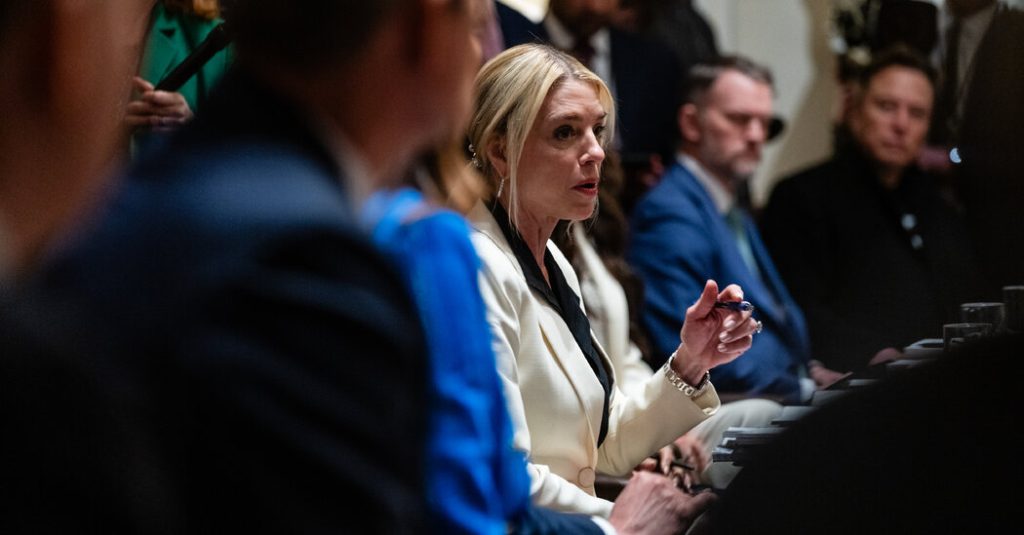The Justice Department unveiled a revised regulation for leak investigations on Thursday, restoring the ability of federal investigators to use court orders, warrants and subpoenas to go after reporters’ phone records, notes or testimony under certain circumstances.
The move by Attorney General Pam Bondi rolls back a policy from her predecessor, Merrick B. Garland, who was appointed by former President Joseph R. Biden Jr., that flatly banned going after reporters’ information in leak investigations.
Mr. Garland’s policy was a major shift after two decades in which the Justice Department had become increasingly aggressive in prosecuting leaks as crimes, a tactic that was vanishingly rare in the 20th century but became routine in the 21st under administrations of both parties.
Mr. Garland changed the policy after the revelation in 2021 that the Justice Department, under Attorney General William P. Barr, had secretly pursued email records of reporters at The New York Times, The Washington Post and CNN during President Trump’s first term. At the time, Mr. Garland said that a flat ban on such tactics was necessary to “allow journalists to perform the crucial work of informing the public without fear of legal consequences.”
Ms. Bondi had foreshadowed that she intended to roll back Mr. Garland’s rule in a memo last week, decrying leaks. The Justice Department, Ms. Bondi wrote, “will not tolerate unauthorized disclosures that undermine President Trump’s policies, victimize government agencies, and cause harm to the American people.”
A document detailing the new regulation says it is meant to address “growing concerns about federal government employees intentionally disseminating confidential, privileged, or otherwise protected information to the media or the purpose of undermining executive agencies’ legal obligations and policies.”
Media lawyers on Thursday morning were poring over the document, but at first glance, the language of the regulation appeared in many respects to revert to the department’s guidelines before Mr. Garland’s changes, which had been issued by the Obama administration.
Generally, the rules require Ms. Bondi herself to sign off before investigators may use compulsory legal processes to seek information about news-gathering activities, like orders to phone companies to provide logs of communications or subpoenas for reporters’ notes or testimony.
The new regulation contains a version of a pre-Garland guardrail that states investigators should exhaust other potential means of obtaining the evidence they are seeking before going after reporters’ information. “The government should have made all reasonable attempts to obtain the information, communications records, or business records from alternative sources,” the regulation reads.
The regulation also says that investigators generally should first pursue negotiations with the affected member of the news media before requiring a phone company to turn over that journalist’s records, but it allows Ms. Bondi to make an exception if she decides such talks would “pose a substantial threat to the integrity of the investigation, risk grave harm to national security, or present an imminent risk of death or serious bodily harm.”


